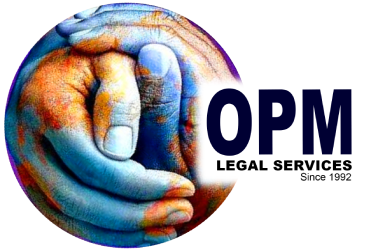
Hiring the Spouse in an offshore company
22/11/2023
Tax Evasion is an economic driver
10/12/2023
In the global context, tax havens in 2024, or "offshore financial centers," continue to play a crucial role
Tax havens in 2024 are still countries or states where foreign investors pay taxes at abnormally low, sometimes zero, rates. These places allow companies and other investors to avoid taxes in high-tax countries. Often, residency or actual business presence is not required to benefit from the advantageous tax policies of these havens, although this can vary in fully tax-exempt countries.
The accommodative tax policies of tax havens in 2024 attract significant capital inflows, which, despite low or no tax rates, contribute to the economic growth of these countries. These capital flows are significant and can support the local economy even with minimal taxes imposed on foreign investment.
The world’s top tax havens, according to the Tax Justice Network, include the British Virgin Islands, the Cayman Islands, Bermuda, the Netherlands, Switzerland, Luxembourg, Hong Kong, Jersey, Singapore, and the United Arab Emirates. These countries have high values in the CTHI index, which measures the ability to attract offshore investment.
Attractiveness and Legal Issues
According to attorney Giovanni Caporaso Gottlieb if one were to award the best tax haven in 2024, on the podium we would find Panama in first place, the United States (Alaska, Florida, Nevada, South Dakota, Tennessee, Texas, Washington and Wyoming) in second place and Andorra in third place. My ranking,” explains lawyer Caporaso, “takes into account factors such as cost, ease of doing business, attractiveness and legal problems to operate. If you are not a multinational corporation or super rich, these 3 countries are for you.
The legal issues associated with tax havens are complex. While many of the activities associated with tax havens are legal, such as using them to manage funds earned abroad while avoiding higher taxes in one’s own country, other activities, such as completely hiding earnings or money laundering, are illegal.
Modern tax havens tend to follow guidelines set by regulatory bodies such as the Organization for Economic Cooperation and Development (OECD) and the U.S. Government Accountability Office. Modern corporate tax havens have high levels of OECD compliance and establish bilateral treaties to reduce taxes on companies that earn in one country but are located in another. Many tax havens have the ability to legally reduce taxes to near zero through base erosion and profit shifting (BEPS) instruments.
These countries attract billions of dollars in investment and offer favorable tax conditions to individuals and companies. Even the United States, while not a tax haven on the same level as the other countries listed, offers a unique tax scenario because of the variety of state tax rates. As a result, states with no income tax such as Alaska, Florida, Nevada, South Dakota, Tennessee, Texas, Washington, and Wyoming can be used as tax havens by those seeking to minimize their tax burden.
A Critical Update of the EU Tax Haven List
In a recent move in October 2023, European finance ministers revised the list of EU tax havens. This update saw the addition of Antigua and Barbuda, Belize and Seychelles to the blacklist, while the British Virgin Islands, Costa Rica and the Marshall Islands were removed.
This action drew mixed reactions, with experts in the tax field pointing out the questionable nature of this revision. According to the comments, the list appears ineffective and inconsistent, leaving unpunished countries that charge virtually no taxes, such as the British Virgin Islands, and failing to subject significant countries such as the United States and the United Kingdom, as well as tax havens within the EU such as Luxembourg and Malta, to scrutiny. This situation is seen as an affront to ordinary citizens who face rising living costs while the wealthiest and multinational corporations evade their tax obligations.
The importance of substantial reform of the list by the EU to make its commitment against tax havens a reality is highlighted. It is suggested that no country should be excluded from the list because of its size or economic influence, and that severe penalties should be imposed on countries that allow companies to pay almost no taxes or hide their true owners. In addition, it is considered crucial that the EU does not ignore the presence of tax havens within its own borders.
The recent revision of the blacklist has been described as insufficient and calls have been made for the introduction of stricter criteria. Among the proposals put forward is to automatically include countries with no or very low taxes on the list and to expand the geographic scope of the list to include more countries, including the United States and the United Kingdom.




